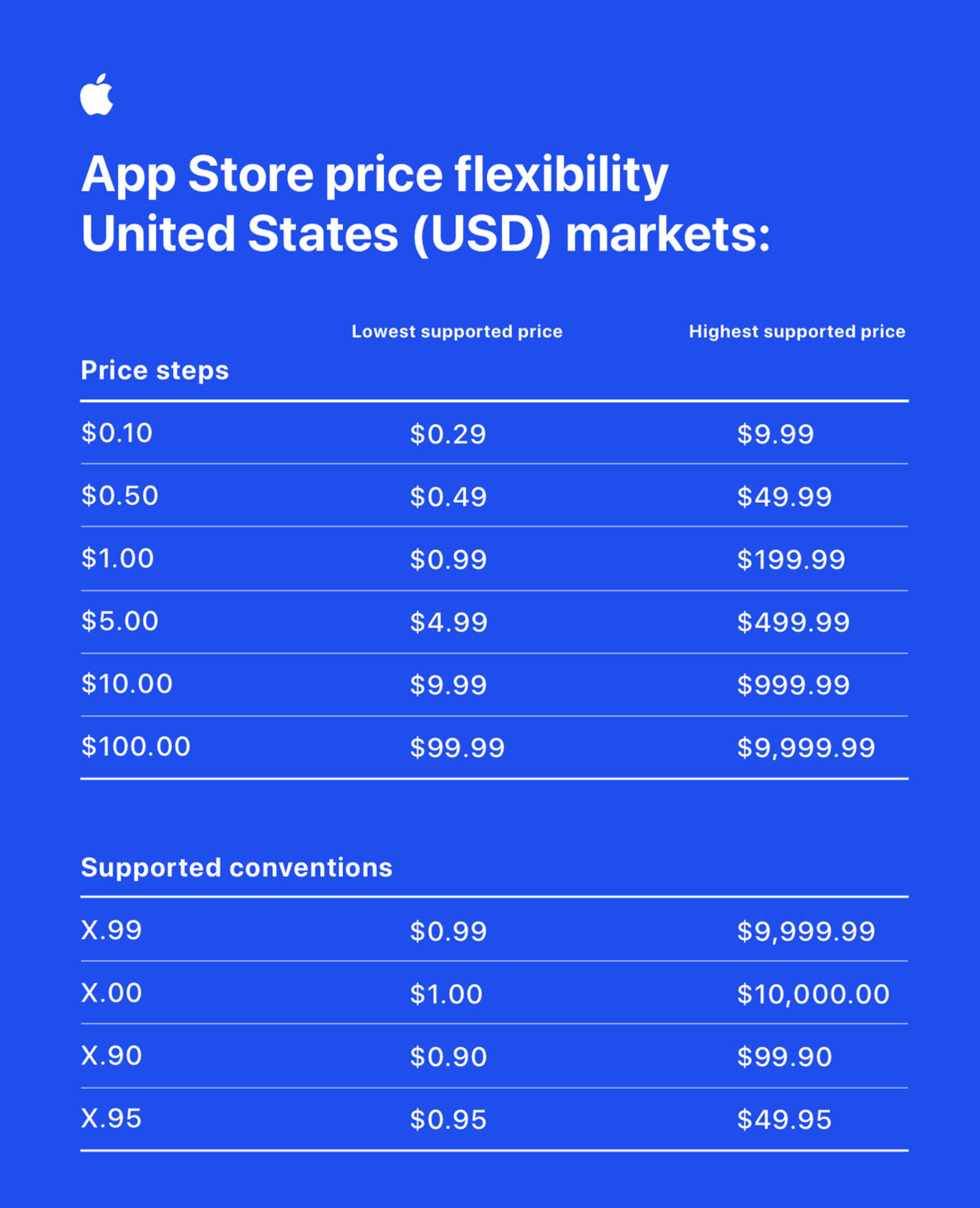Apple updates App Store pricing system by adding 700 new price points
Apple has introduced probably the biggest update to the App Store pricing systems. Developers will now have hundreds of options to choose from to better manage the prices of their apps, IAPs, and subscriptions.

As Apple pointed out in a new blog post, these changes are already available for apps with auto-renewable subscriptions. All other developers will receive access to the new price points in spring 2023.
- The updated system includes 600 new price points, as well as 100 higher price points available upon request.
- Overall, iOS developers will now be able to choose from 900 points to set prices for apps, in-app purchases, or subscriptions.
- For comparison, there were previously only 87 price points to choose from in most developed markets, while developers of apps with auto-renewable subscriptions could choose from 200 options.
- The new lowest price will be $0.29, and the highest will be $10,000. There will also be several price steps, from $0.10 to $100.
- Developers will be able to choose one local storefront as the basic, so the App Store could automatically generate prices across the other 174 storefronts and 44 currencies.

Here is what Apple said about another major App Store update coming next year: “Developers with paid apps and in-app purchases will be able to set local territory pricing, which will not be impacted by automatic price adjustments.”
Earlier this year, Apple also raised App Store prices in Europe and Asia to reflect global inflation and rising energy costs. So the company decided to adjust prices for currency fluctuations or tax changes in certain countries. This is similar to what Valve did when it raised recommended regional pricing for Steam last month.
As pointed out by TechCrunch, the new App Store changes also come as regulators across the globe continue to scrutinize Apple. The US Department of Justice is considering filing an antitrust lawsuit against the company to challenge its market practices, tight control of the App Store, and lack of transparency.